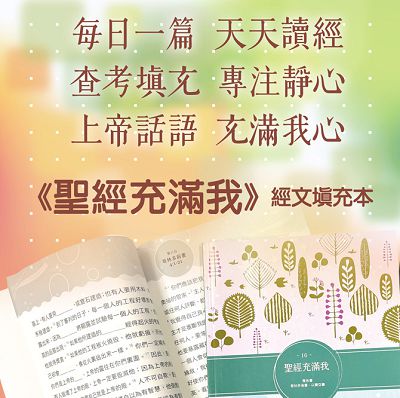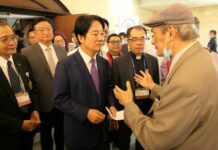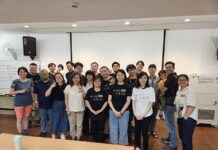March 5~11, 2012
Headline News
Tao indigenous groups living in Orchid Island recently accused Taiwan Power Company of using subpar means to store nuclear wastes resulting in radioactive leaks that threaten the well-being of Orchid Island’s residents and environment. In response to their concerns, the Atomic Energy Council released a news article claiming that the amount of radioactivity from nuclear wastes at facilities in Orchid Island were within legal limits and added that incidences of cancer among Taiwanese had been rising across Taiwan, not just in Orchid Island.
A press conference sponsored by Orchid Island Tao Reservation Cultural Foundation was held at the Legislative Yuan on March 1, 2012 and attended by DPP, TSU, and Green Party legislators as well as scholars and youths and representatives from women rights foundations and Rev. Chang Hai-yu from Tungching Presbyterian Church in Orchid Island. Besides showing photos of affected people and animals in Orchid Island, the meeting also featured a documentary chronicling Orchid Island residents’ efforts over the years to oppose the storage of nuclear wastes in their backyard.
Lin Shih-lan, director of this documentary, was born in 1982 when nuclear wastes first began being stored in Orchid Island. “Taiwan Power Company used to tell indigenous peoples that nuclear wastes were safe. It wasn’t until much later that we discovered that they were actually life threatening,” he said. He added that after accompanying his father to many anti-nuclear energy rallies in the last 30 years, his hope is that this documentary will open people’s eyes and minds to understand why Tao indigenous groups want Taiwan Power Company to store nuclear wastes elsewhere.
“Ma Ying-jeou once said he’d listen to the voice of the people and tune in to the cry of marginalized people. Tao people want to say to the Ma administration: Please give us a place to live and survive!” Rev. Chang said, adding that it has been 30 years since he and many of his people have protested against the Taiwanese government about storing nuclear wastes in Orchid Island.
Seeing that nuclear waste storage facilities in Orchid Island are in tatters and Taiwan Power Company’s land lease with Orchid Island Township government expired as of end of 2011, Tao indigenous residents convened a meeting on February 20 and decided that they no longer wanted their ancestral lands to be used as nuclear waste storage facilities by Taiwan Power Company. “For this reason, these barrels of nuclear wastes should return to wherever they came from!” they said in a statement.
In related news, many organizations opposed to nuclear energy, including the PCT Church and Society Committee, will be participating in a protest rally on March 11, 2012, a date which coincides with the first anniversary of the earthquake and tsunami in Japan. This rally themed “311 Farewell to Nuclear Energy” and sponsored by Taiwan Environmental Protection Union (TEPU) will be held in Taipei, Taichung, and Kaohsiung and will focus on urging the government to stop the building of the 4th Nuclear Power Plant and start legislating a schedule to phase out nuclear energy altogether.
To prepare for this rally, TEPU began putting up “zero” signs to explain the devastating effects of a nuclear accident, emphasizing on how such an accident could reduce everything to “zero” including personal assets, cultural and historical sites, government functions, national economies, human lives and more. They put up these signs in various places, including near the front steps of the Executive Yuan, Legislative Yuan, and Control Yuan.
TEPU General Secretary Li Cho-han said that the Wall Street Journal had issued a report on the 14 most dangerous nuclear plants in the world shortly after the Fukushima nuclear spill and all 3 existing nuclear plants in Taiwan, in addition to the newly-built 4th Nuclear Power Plant, were on this list. Besides being considered likely sites for nuclear accidents similar to the Fukushima nuclear disaster that rocked Japan one year ago, nuclear plants in Taiwan were also considered among those built the closest to a metropolitan area. “The 1st and 2nd and 4th Nuclear Power Plants in New Taipei City are the most dangerous nuclear power plants in the world!” he said.






